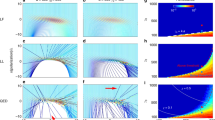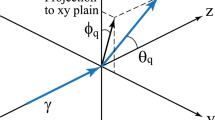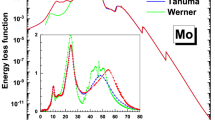Abstract
THE infra-red catastrophe in the higher-order radiative corrections to electron scattering has been well known and shown to disappear when the virtual processes are considered along with the real processes of the same order. It will be, perhaps, worth investigating the problem of infra-red catastrophe in the case of higher-order radiative corrections to the Compton effect and Bremsstrahlung for an electron. In the present communication the results of the calculations for the second-order corrections to the Compton effect and Bremsstrahlung by the co-variant formalism of Feynman–Dyson are given. The graphs of the two processes are similar and given below: 
This is a preview of subscription content, access via your institution
Access options
Subscribe to this journal
Receive 51 print issues and online access
$199.00 per year
only $3.90 per issue
Buy this article
- Purchase on Springer Link
- Instant access to full article PDF
Prices may be subject to local taxes which are calculated during checkout
Similar content being viewed by others
Author information
Authors and Affiliations
Rights and permissions
About this article
Cite this article
MITRA, A. Radiative Corrections to Compton Scattering and Bremsstrahlung. Nature 169, 1009–1010 (1952). https://doi.org/10.1038/1691009a0
Issue Date:
DOI: https://doi.org/10.1038/1691009a0
Comments
By submitting a comment you agree to abide by our Terms and Community Guidelines. If you find something abusive or that does not comply with our terms or guidelines please flag it as inappropriate.



